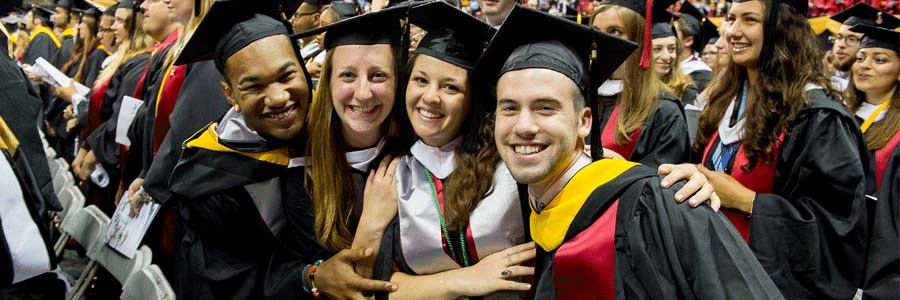Post-secondary education: What is the difference between college and university?
 Image by Maryland GovPics. CC BY
Image by Maryland GovPics. CC BY
Are you going to college or university?
College is different from university in Canada. They are the two types of post-secondary education programs taken after graduating from high school.
What is post-secondary education?
Studies beyond high school are called post-secondary education. Students take a program to earn:
- Apprenticeship or trades certificate or diploma (including ‘centres de formation professionelle’)
- College, CEGEP or other non-university certificate or diploma
- University or diploma below bachelor level
- University degree (bachelor’s degree, university certificate or diploma above bachelor level, degree in medicine, dentistry, veterinary medicine or optometry, etc.); master’s degree; earned doctorate
There are three types of post-secondary schools:
- Universities
- Colleges
- Institutes
These schools and the programs they offer must meet standards set by the government. Only then can they be officially recognized to grant degrees, diplomas, certificates and other qualifications. Manitoba Advanced Education is the government ministry in charge of post-secondary education in the province.
What is the difference between college and university?
The main difference between a college and university is that universities focus on academic and professional programs while colleges tend to be more career-oriented and offer career training and trades.
Colleges and institutes
Colleges and institutes usually offer certificate programs which take one year or less, and diploma programs which can take two to three years. However, a growing number of colleges now also offer bachelor’s degrees, even master’s degrees. Aside from in class studies, college programs offer practical, hands-on training such as pre-trades and apprenticeship. Areas of study can range from business to health.
You will know these institutions as colleges, community colleges, colleges of applied arts and technology, and institutes of technology or science. Career colleges are institutes that are entirely private.
Colleges in MB:
- Red River College
- Assiniboine Community College
- Manitoba Institute of Technology. To know more about MITT, read Getting into the Trades)
- École Technique et Professionelle
- International College of Manitoba
Universities
Universities offer programs that grant degrees in a variety of subjects and fields. Most degrees take three to four years to complete for a full-time student. You can earn three types of degrees: bachelor’s degree (undergraduate degrees), master’s degree (more advanced and requires an undergraduate degree), and doctoral degree (most advanced and may require a master’s degree). Graduates of regulated professions (ex: medicine, law, education) have to complete internships and pass standard exams before they can be licensed to work in their field.
Universities in MB:
- University of Manitoba
- University of Winnipeg
- Brandon University
- Université de Saint-Boniface
- Providence University College
- Booth University
- Canadian Mennonite University
- University College of the North
There are two main terms per year at most post-secondary institutions: September to December and January to April.
Sources: Post-secondary education, Government of Canada; The Canadian Centre Information Centre for International Credentials; What is the difference between college and university in Canada? Settlement.org; and Education and Training, Manitoba.ca. Accessed July 23, 2019.
Community Resources
Are you interested in studying in Manitoba? Go to Study in Canada as an international student for more details.
